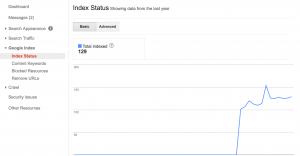As regular visitors to the this blog will know, I hate it when online partners stretch the truth or hide the obvious to squeeze a few extra dollars out of their clients.
This issue seems to be more common with Pay-Per-Click (PPC) providers than it is within other parts of the industry. It could be that a commission payment model just encourages some vendors to dribble their way around ethical guidelines in any type of business, which would explain some of the scandals we see in finance and other fields.

Regardless of the specific reason, there are probably thousands of companies across North America paying more than they should for PPC ads at this very moment.
In fact, just in my own local market of Calgary, I recently observed that several learning institutions were paying for search advertising targeted at their own names and brands. In each search I tested (except for one), the organizations had organic listings that were popping up in the search results directly below their ads, with no competitor ads appearing.
Just to be crystal clear, it seems very likely that these groups would be getting just as much traffic as they already are without the ads, since their (unpaid) links are showing right below the AdWords options. Some PPC firms would argue with me that they are commanding more SERP real estate for their clients, but I don’t buy it (literally). It’s like having people knocking at the door, but allowing a doorman to charge you for them to enter.
To give you a little more insight into why/when bidding on your own keywords can be a problem, and to help you understand when to bid and when not to, let’s take a closer look at the practice of placing search ad bids against your own name…
When to Bid For Your Own Name Or Brand
Generally speaking, there’s only one time when you’d want to place ads for keywords related to your own brand name: when you have a competitor who is trying to steal traffic from you by bidding on your terms.
For example, if another web design studio, search engine firm, or inbound marketer were to start running ads for the phrase “Kayak Online Marketing,” it might make sense for me to spend a few dollars a day bidding on that phrase (and anything similar) to be sure our potential clients could find us. (After a personal visit from my pal Guido of course.)

I should point out that while the practice of bidding on your competitor’s brand names isn’t outlawed, it not exactly ethical either. After all, when a searcher goes online to find your competitor, how are they going to feel when they click on an ad only to be shown your site instead? Tricked, most likely. That’s a pretty classic example of bait-and-switch marketing that isn’t likely to endear you to buyers or colleagues.
How Companies End Up Bidding Against Themselves
Assuming no one else is bidding on your brand names, though, there isn’t any point to pay for them yourself. Your website would obviously show up in the first position of the organic listings for any search related to your company or products, so why spend the money?
Here are a couple ways a business might inadvertently end up spending money to bid for keywords related to their own company name or brand.
The first has to do with PPC firm buying/commission models. Easy wins generate more clicks, ‘proof’ of performance, and thus higher ad budgets, which the firm takes a commission from. And second, while many people realize a click means a cost, others won’t hesitate to click an advertisement because it features the search result they are seeking. That’s great news for PPC firms who are carving off a commission, and it boosts their ROI numbers, however inflated and misleading they are.
Another way businesses can end up bidding against themselves has to do with Google’s automatic setup process which may recommend keywords that are listed on the advertiser’s site. Company names and brand names could be suggested automatically, and business owners or marketing managers might select them without realizing they don’t need to. Either way, Google draws in more ad revenue, so I can’t imagine they’d be too quick to end the practice.
It’s Ok to Skip Brand Name Bidding
If you’re in doubt, there’s probably no reason to target your company or brand names with search advertising. It’s just not warranted unless you’re facing a competitor who is forcing you to play defense.
As long as you’re keeping an eye on your search positioning, you’ll be able to tell when another company is targeting buyers who intend to find you. And even if that’s the case, you probably don’t have a great deal to lose.

By bidding on terms related to your brand, the other marketer is probably going to rack up some big costs while hurting their own quality scores because most searchers are likely to click through to your site instead of theirs. Or, they may get some clicks, but even those will be wasted if they can’t persuade customers who were looking for your brand to switch to them. Trust lost is seldom regained.
Again, these are special situations that don’t apply to most businesses. Chances are, if you’re running ads based on your own name and brand, you’re just bidding against yourself. Why not let those clients or customers find you for free?
Learn more about the best ways to improve your PPC strategy with this new download from your friends at Kayak.
Digital & Social Articles on Business 2 Community
(79)
Report Post







